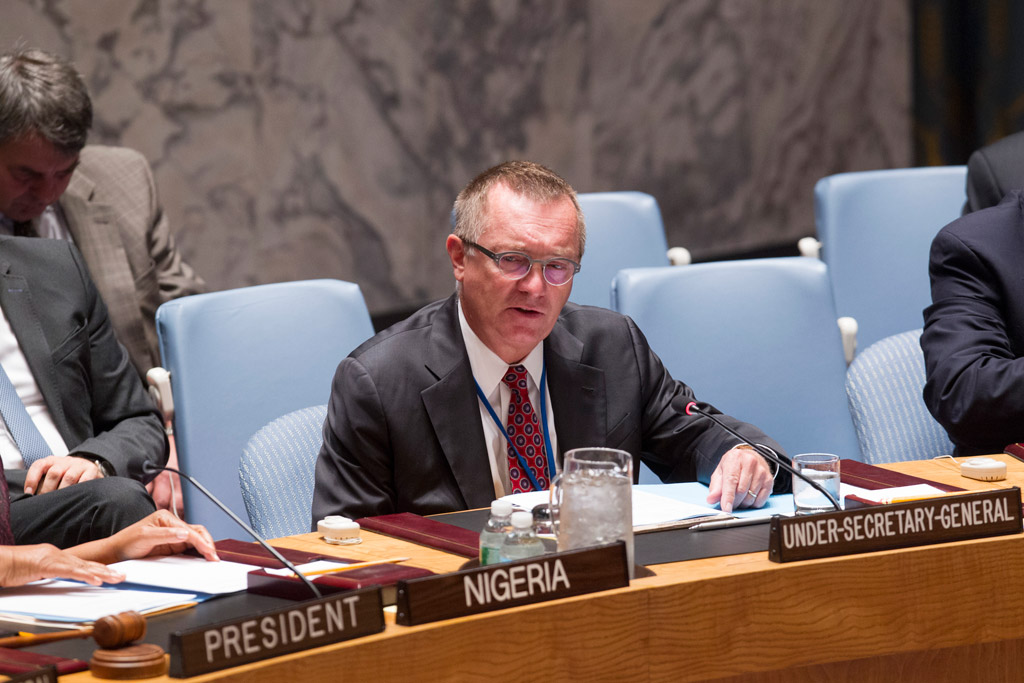New York-In its biannual report on the state of ISIS and al-Qaeda, the U.N. says recruitment of foreign terrorist fighters to ISIS in Iraq and Syria “has slowed considerably” and fighters are increasingly leaving the battlefield.
ISIS’s finances are also on the decline, forcing it to operate on a “crisis” budget, and the territory it holds has shrunk significantly.
“Although its income and the territory under its control are shrinking, ISIS still appears to have sufficient funds to continue fighting,” Under-Secretary-General for Political Affairs Jeffrey Feltman said, briefing the Security Council on the U.N. Secretary-General Antonio Guterres’ fourth report on the threat the group poses to international peace and security efforts to “check and roll it back.”
Feltman noted that ISIS relies mainly on income from extortion and hydrocarbon exploitation even though resources from the latter are on the decline.
A report sent to the council last week said that ISIS revenue from illicit oil sales, mainly from oil fields in Syria’s Deir Ezzor province, had dropped from a peak of $500 million in 2015 to $260 million in 2016.
U.N. member states are concerned that ISIS will try to expand other sources of income, such as kidnapping for ransom and increase its reliance on donations, he stated.
While the previous reports on the subject have focused on South East Asia, Yemen and East Africa, Libya and Afghanistan, the fourth report zeroes in on Europe, North Africa and West Africa.
The fourth report stressed the need to develop sustained, coordinated responses to the grave threat posed by ISIS and associated groups and entities.
The report also warned of threats to countries where their nationals who have fought with ISIS return home, saying that they “will present a significant threat if they eventually return, given that most are staunchly committed to ISIS ideology.”
In 2014, ISIS said it would carry out attacks in Europe and the United States in retribution for airstrikes against the group.
“Some of these attacks were directed and facilitated by ISIS personnel while others were enabled by ISIS providing guidance or assistance or were inspired through its propaganda,” Feltman said.
